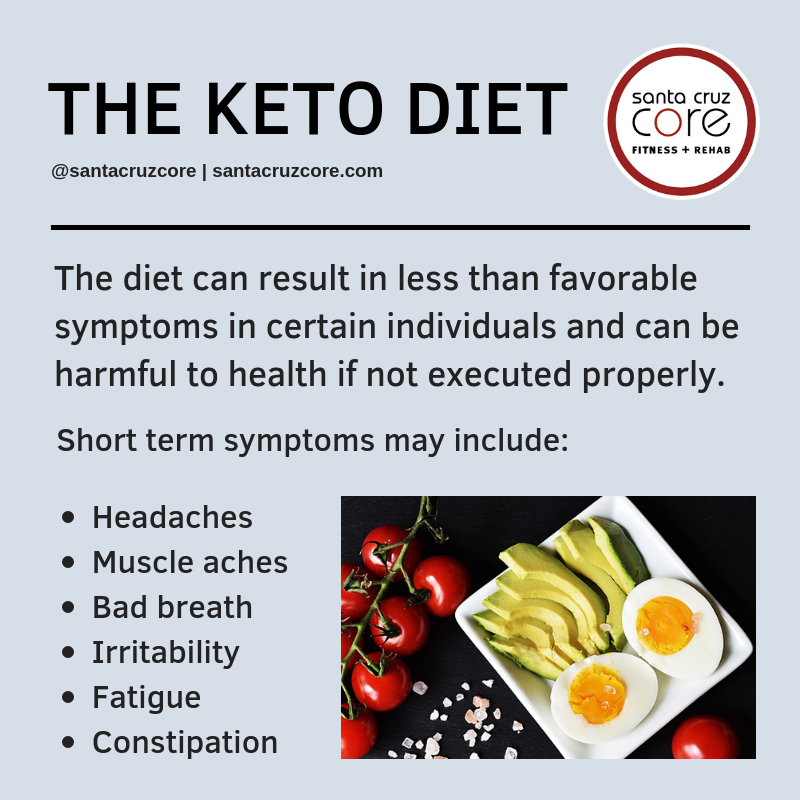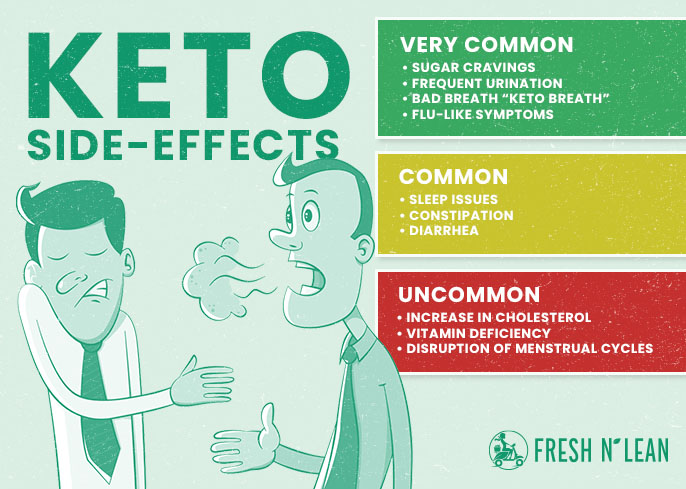Have you ever wondered what the effects of a keto diet are on your body? Well, you’re in luck because we’re about to dive into all the details! By the end of this article, you’ll have a better understanding of how a keto diet can potentially help you shed those extra pounds and boost your overall health.
So, what exactly does a keto diet do to your body? Well, it’s all about the way your body utilizes energy. When you follow a keto diet, you restrict your intake of carbohydrates and increase your intake of fats. This shift in energy source forces your body to enter a state called ketosis. During ketosis, your body starts using fat as its primary fuel source instead of carbohydrates. This can lead to some incredible benefits, such as rapid weight loss, improved brain function, increased energy levels, and reduced inflammation.
In the upcoming sections, we’ll delve deeper into each of these effects and provide you with all the information you need to understand how a keto diet may be a game-changer for your weight loss journey and overall well-being. Stay tuned!
Introduction
The Effects of a Keto Diet on Your Body
The keto diet, short for the ketogenic diet, has gained significant popularity in recent years as an effective method for weight loss and improving overall health. This article will discuss the various ways in which a keto diet can impact your body and help you achieve your health goals.
What is a Keto Diet?
A ketogenic diet is a low-carbohydrate, high-fat diet that encourages the body to enter a state of ketosis. Ketosis occurs when the body doesn’t have enough carbohydrates to burn for energy, so it begins to break down fat instead. This process leads to the production of ketones, which become the primary source of fuel for the body.
Why is the Keto Diet Popular?
The keto diet has gained popularity due to its ability to promote weight loss and provide numerous health benefits. Unlike traditional low-fat diets, the keto diet focuses on consuming healthy fats while limiting carbohydrates. This approach not only helps individuals shed excess pounds but also offers a wide range of other positive effects on the body.
Benefits of a Keto Diet
Before diving into the specific effects of a keto diet, it’s important to highlight some of its key benefits. The keto diet has been found to:
-
Promote weight loss: By reducing carbohydrate intake and increasing fat consumption, the keto diet encourages the body to burn stored fat for energy, leading to weight loss.
-
Increase satiety: The higher fat and protein content in a keto diet can help suppress appetite and reduce cravings, making it easier to stick to the diet and avoid overeating.
-
Preserve lean muscle mass: Unlike low-calorie diets that often result in muscle loss, the keto diet helps preserve lean muscle mass due to sufficient protein intake.
-
Enhance mental clarity and focus: Many people report improved cognitive function and increased mental clarity when following a keto diet. This is thought to be due to the stable energy levels provided by ketones.
Now that we’ve covered the basics of a keto diet and its benefits, let’s delve deeper into how it affects your body.
Understanding the Science Behind the Keto Diet
How Does the Keto Diet Work?
The keto diet works by significantly limiting carbohydrate intake, which forces the body to switch from using glucose as its primary fuel source to using ketones. When carbohydrates are restricted, the liver produces ketones from stored fat, which can be used by the body and brain as an alternative energy source.
The Role of Ketones in the Body
Ketones play a crucial role in the body when following a keto diet. They are produced by the liver and provide an alternative source of energy for the brain. This is particularly important during periods of carbohydrate restriction, as the brain typically relies on glucose for fuel. Ketones can also be utilized by other organs and muscles, contributing to increased energy levels and metabolic efficiency.
Metabolic Changes on a Keto Diet
Following a keto diet leads to several metabolic changes in the body. First, insulin levels decrease significantly due to the limited carbohydrate intake. This can enhance fat burning and promote weight loss. Additionally, the body becomes more efficient at burning fat, as it adapts to using ketones as its primary fuel source. These metabolic changes contribute to the many positive effects of a keto diet on weight loss and overall health.
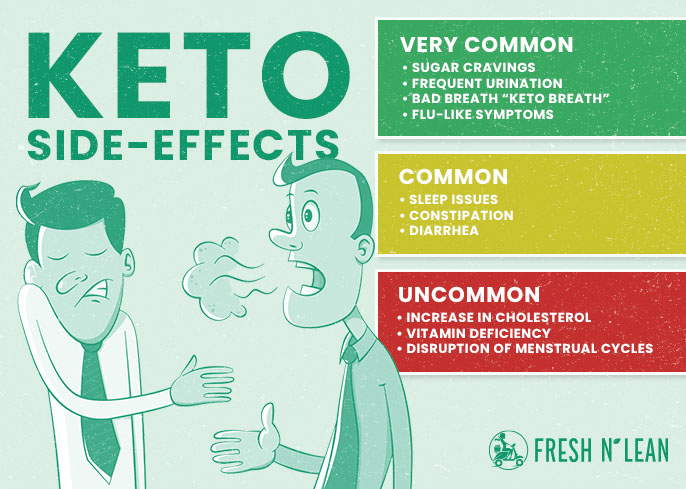
Effects of a Keto Diet on Weight Loss
Promoting Fat Burning
One of the primary effects of a keto diet is its ability to promote fat burning. By limiting carbohydrates and consuming a higher amount of healthy fats, the body is forced to access its fat stores for energy. As a result, individuals on a keto diet experience significant weight loss, primarily from fat loss.
Reducing Appetite and Cravings
Another beneficial effect of a keto diet is its ability to reduce appetite and cravings. The higher fat and protein content in the diet can help you feel full and satisfied, leading to decreased hunger levels. This can make it easier to stick to the diet and avoid overeating or indulging in unhealthy snacks.
Preserving Lean Muscle Mass
Unlike traditional low-calorie diets, which often result in muscle loss, the keto diet helps preserve lean muscle mass. Adequate protein intake is essential on a keto diet to provide the necessary building blocks for muscle maintenance and repair. Preserving lean muscle mass is important for long-term weight management and overall body composition.
Impact of a Keto Diet on Energy Levels
Switching from Glucose to Ketones
One of the significant effects of a keto diet on energy levels is the switch from glucose to ketones as the primary fuel source. While glucose provides quick bursts of energy, it can also lead to crashes and fluctuations in energy levels throughout the day. On the other hand, ketones provide a more stable and sustained source of energy, resulting in improved energy levels and fewer energy crashes.
Steady Energy Throughout the Day
By relying on ketones for fuel, individuals on a keto diet often experience more consistent energy levels throughout the day. This is because ketones are slowly released and metabolized, providing a steady supply of energy. This can be particularly beneficial for those who require sustained energy for work, exercise, or daily activities.
Enhanced Mental Clarity and Focus
Many individuals following a keto diet report improved mental clarity and focus. This can be attributed to the stable energy levels provided by ketones, which prevent the energy crashes and brain fog commonly experienced when relying on glucose as a fuel source. Enhanced mental clarity and focus can improve productivity, concentration, and overall cognitive function.
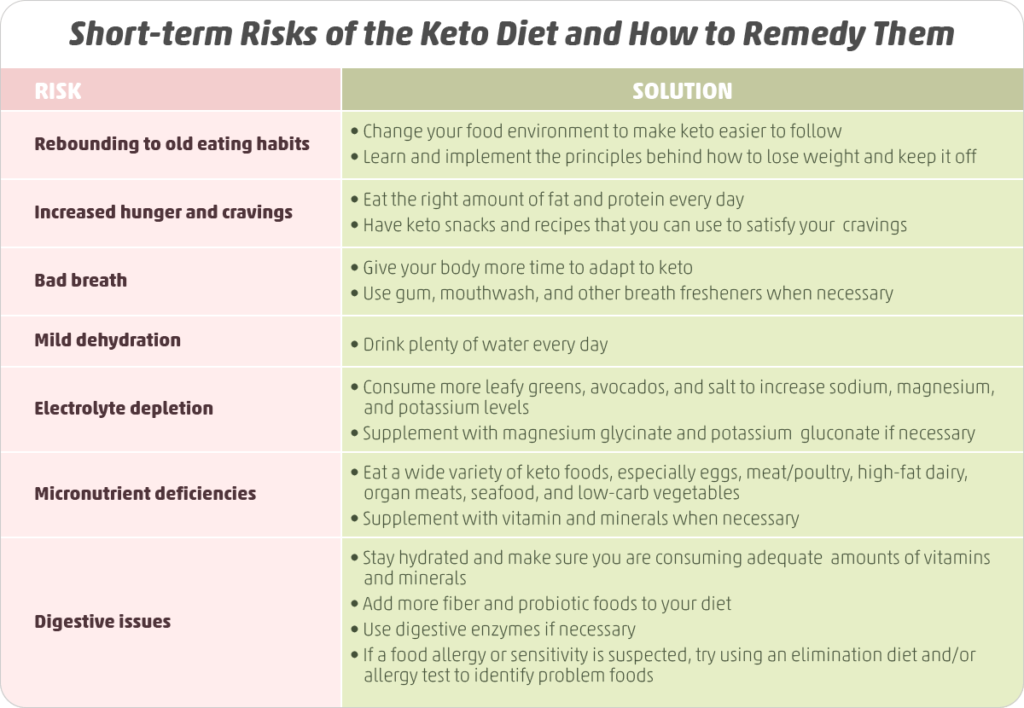
Influence of a Keto Diet on Blood Sugar Control
Regulating Insulin Levels
The keto diet has shown promise in regulating insulin levels, particularly in individuals with insulin resistance or type 2 diabetes. By reducing carbohydrate intake, the body requires less insulin to process the available glucose. This can help improve insulin sensitivity and reduce the risk of blood sugar spikes and crashes.
Improving Insulin Sensitivity
Insulin sensitivity refers to the body’s ability to efficiently use insulin to transport glucose into cells. A keto diet has been found to improve insulin sensitivity, enabling the body to more effectively regulate blood sugar levels. This is especially beneficial for individuals with insulin resistance or those at risk of developing type 2 diabetes.
Managing Type 2 Diabetes
The effects of a keto diet on insulin sensitivity and blood sugar control make it a potentially effective tool for managing type 2 diabetes. By limiting carbohydrate intake, individuals with diabetes can better regulate their blood sugar levels and reduce the need for insulin medication. However, it’s essential to consult with a healthcare professional before making any significant dietary changes.
Effect of a Keto Diet on Cholesterol and Heart Health
Improved Blood Lipid Profile
Contrary to the misconception that a high-fat diet is detrimental to heart health, the keto diet has been found to improve blood lipid profile, with a particular focus on decreasing levels of LDL (bad) cholesterol and increasing levels of HDL (good) cholesterol. This improvement can lead to a reduced risk of heart disease and other cardiovascular conditions.
Increased Levels of HDL (Good) Cholesterol
The keto diet has been shown to increase levels of HDL cholesterol, which is considered the “good” cholesterol. Higher levels of HDL cholesterol have been associated with a reduced risk of heart disease and improved cardiovascular health.
Lower Triglyceride Levels
Triglycerides are a type of fat found in the bloodstream. High levels of triglycerides have been linked to an increased risk of heart disease. The keto diet has been shown to reduce triglyceride levels, promoting better heart health and reducing the risk of cardiovascular complications.
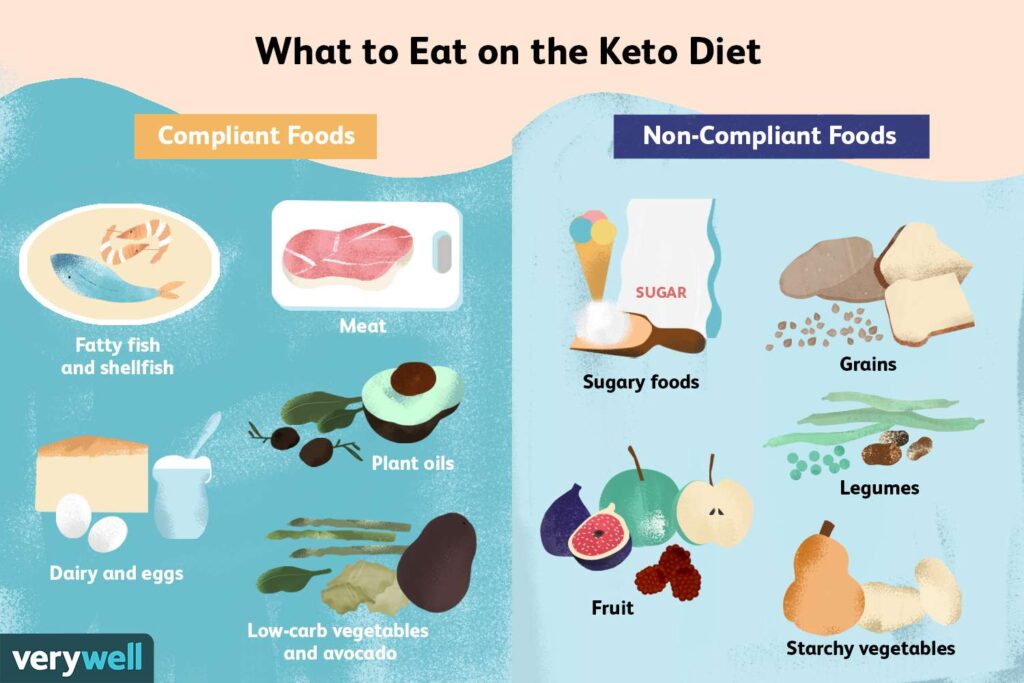
Impact of a Keto Diet on Inflammation and Chronic Diseases
Reduced Inflammation in the Body
Inflammation is a natural response by the body to injury or infection, but chronic inflammation can contribute to various health issues, including chronic diseases like heart disease, diabetes, and certain cancers. The keto diet has been found to reduce inflammation markers in the body, potentially lowering the risk of developing chronic diseases.
Potential Benefits for Neurological Disorders
The keto diet has shown potential benefits for certain neurological disorders, such as epilepsy and Alzheimer’s disease. The low-carbohydrate, high-fat nature of the diet may help reduce seizures in individuals with epilepsy and improve cognitive function in those with Alzheimer’s disease. Further research is needed to fully understand the extent of these benefits.
Potential Benefits for Cancer Treatment
Emerging studies suggest that a keto diet may have potential benefits in cancer treatment. Cancer cells typically rely on glucose as their primary fuel source. By limiting carbohydrate intake and reducing glucose availability, the keto diet may inhibit cancer growth or increase the effectiveness of certain cancer treatments. However, more research is required in this area.
Considerations for Exercise and Performance on a Keto Diet
Adapting to Exercise on a Keto Diet
When starting a keto diet, it’s important to allow your body time to adapt to the changes in fuel sources. During the initial adaptation phase, some individuals may experience a decrease in exercise performance due to the limited glycogen stores. However, as the body becomes more efficient at using ketones for energy, exercise performance can improve.
Effects on Endurance and High-Intensity Workouts
While the keto diet may initially affect performance during endurance and high-intensity workouts, many individuals report increased endurance and improved fat utilization once fully adapted to the diet. The ability to access and burn stored body fat as fuel can be advantageous for endurance athletes and those seeking to improve body composition.
Balancing Macronutrients for Optimal Performance
To maximize exercise performance on a keto diet, it’s essential to ensure you’re meeting your macronutrient needs. Consuming an adequate amount of healthy fats, maintaining a moderate protein intake, and incorporating low-carbohydrate, nutrient-rich foods can help support energy levels and optimize athletic performance.
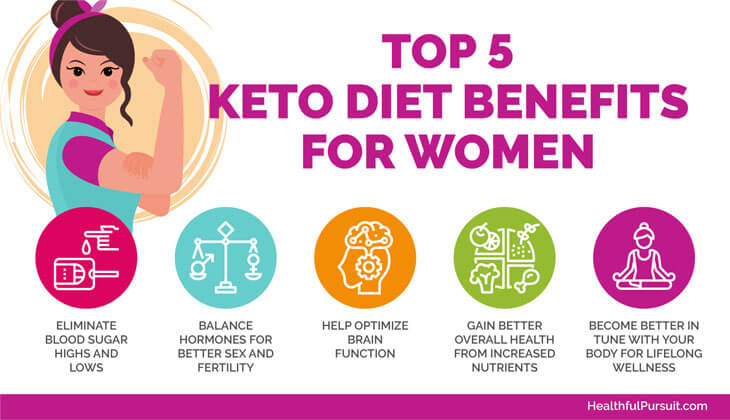
Potential Side Effects and Risks of a Keto Diet
Keto Flu and Initial Adaptation Phase
One potential side effect of starting a keto diet is the “keto flu.” This can include symptoms such as fatigue, headaches, nausea, and irritability as the body adjusts to using ketones as its primary fuel source. These symptoms are temporary and can be mitigated by staying hydrated, ensuring adequate electrolyte intake, and gradually transitioning into the diet.
Electrolyte Imbalance
Restricting carbohydrates can lead to changes in electrolyte levels, as carbohydrates are a primary source of electrolytes in the diet. It’s important to be mindful of electrolyte balance on a keto diet and consider incorporating foods or supplements rich in sodium, potassium, and magnesium.
Effects on Gut Health
The impact of a keto diet on gut health is not fully understood. While some studies suggest a potential positive effect, such as reducing inflammation and improving gut barrier function, the long-term effects of a keto diet on gut microbiota diversity and overall gut health require further research.
Conclusion
In conclusion, a keto diet offers numerous beneficial effects on the body, ranging from weight loss and improved energy levels to better blood sugar control and heart health. By understanding the science behind the keto diet and considering individual needs, it is possible to harness the transformative power of this dietary approach. However, it’s important to consult with healthcare professionals before embarking on any significant dietary changes to ensure it aligns with your specific health goals and needs. With proper guidance and customization, a keto diet can be a valuable tool in achieving optimal health and well-being.
